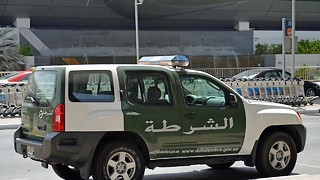A passage to India: Part 1
In the first of a series, Tom Belger writes about his summer with the community of Tibetan refugees in Mcleod Ganj.

We arrived in Mcleod Ganj this week, a little hillside town 2000 metres above sea level in northern India. It is known as ‘Little Lhasa’, after the Tibetan capital. It is home to a great number of Tibetan refugees, as well as the headquarters of the Tibetan government-in-exile.
Nimble monkeys perch on shop signs, balconies and walls. Stray dogs laze in front of shops. Cows, horses and goats stroll down the streets, alongside cars, motorbikes, three-wheeled tuk-tuks, Indians, Tibetans, Buddhist monks and guidebook-clutching tourists.
For the past couple of afternoons I have volunteered with my fellow traveller, Amy, at a centre offering English conversation classes for Tibetan refugees. Being here has been a real eye-opener.
Before I arrived, I knew next to nothing about China’s oppressive presence in Tibet, a nation it invaded in the 1950s and now claims as its own. It sat in my mind alongside veganism and CND as one of those causes I knew little about, but assumed to be widely supported purely because it was a rather trendy thing to do so. ‘Free Tibet’ was a rallying cry I had seen only on musicians’ t-shirts at rock concerts.
Having spoken to many of the Tibetan refugees whose shops line the streets of Mcleod Ganj, however, the stories behind the slogan gives it a tragic potency that will remain with me long after the tales, names and faces have faded from memory.
Across the road from the room we’re renting is a colourful shop, lodged in the hillside. I approached the Tibetan owners and mumbled something about being interested in the Tibetan issue. Choe, a sweet woman in her early 50s, explained in broken English how she had come to be in Mcleod. Aged nineteen, she had decided to leave Tibet, sick of the continual scouring of her home by Chinese officials.
Religious freedom in largely Buddhist Tibet is severely restricted. Monasteries are demolished, monks attacked and portraits of the Tibetan spiritual leader the Dalai Lama - so important to prayer - prohibited and destroyed.
Denied passports by the government, most Tibetans seeking to leave face an unenviable escape across the Himalayas. Many travel quickly through an equally dangerous Nepal - dubbed the “little bitch of China” by one man I met – and into India. Choe and a friend set out across the mountains, braving freezing conditions, Chinese snipers and the risk of starvation. Her friend turned back after several days.
Alone and emaciated, Choe reached Nepal in eight days, where she was fortunate enough to come across a Tibetan truck driver willing to take her across the less tightly monitored borders to India.
I ask her how she finds living in India today. She smiles and praises the “freedom” and “kind welcome” of India, all the while slowly running a slender figure around the top of her mug.
She returned home in the 1ate 1980s while three-months pregnant, however, prepared to risk jail to see her family. Clad in Nepali dress and a bindi to ease her passage through the country in a friend’s jeep, she narrowly escaped detection at the Tibetan borders.
Checkpoints are manned by often-sympathetic Tibetan police, but supervised by Chinese officials. Under their breath, the guards advised her to say that she was merely visiting a commercial area close to the border.
Yet Choe was unfortunate – the Chinese inspector came down from his watchtower. By a stroke of luck, he could not understand Tibetan and did not detect anything suspicious.
Choe’s experience of the Tibetan police contrasts sharply with what she and her husband have to say about the Indian counterparts. Jampa explains that fights break out “two or three times a year” between young Indians and Tibetans in Mcleod, often after dark and after drink.
When fights spark, he continues, the Tibetan is always the one arrested. Indian officials also have the authority to demand to see the little blue ‘registration certificates’ carried by Tibetans.
He says that, in Mcleod, the police request these in the evenings when Tibetans are least likely to be carrying them. When, as expected, cards cannot be produced, the accusers demand bribes.
I cannot fully imagine what it would be like to lack all faith not simply in the competence of the police, but also in its neutrality. Perhaps it is makes sense for all to carry ID. But Jampa’s stories evoke in my mind only thoughts of similar passes being burnt by a certain Mahatma Gandhi. He did so in South Africa in protest at British colonial rule.
One suspects the irony is lost on corrupt Indian policemen.
 News / Newnham postgrads referred to homeless charities as College runs out of rooms31 July 2025
News / Newnham postgrads referred to homeless charities as College runs out of rooms31 July 2025 Arts / William Morris’ little-known labours in Cambridge25 July 2025
Arts / William Morris’ little-known labours in Cambridge25 July 2025 Lifestyle / Break-ups in the bubble31 July 2025
Lifestyle / Break-ups in the bubble31 July 2025 News / Lucy Cav secures £47m loan to expand student accommodation30 July 2025
News / Lucy Cav secures £47m loan to expand student accommodation30 July 2025 Theatre / One year, many stages: the fresher actors behind Cambridge theatre31 July 2025
Theatre / One year, many stages: the fresher actors behind Cambridge theatre31 July 2025








